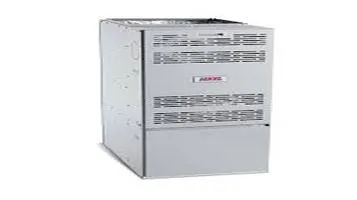Energy-Efficient Appliances: A Smart Choice for a Sustainable Future
Energy-efficient appliances are designed to use less electricity or water while maintaining or improving performance compared to standard models. These appliances, which include refrigerators, washing machines, dishwashers, and air conditioners, incorporate advanced technologies such as improved insulation, variable-speed motors, and smart sensors to optimize energy consumption. The use of energy-efficient appliances not only reduces utility bills but also minimizes environmental impact by lowering greenhouse gas emissions and conserving natural resources. Many of these appliances are recognized by certifications like ENERGY STAR, which helps consumers identify products that meet high energy-efficiency standards. Investing in energy-efficient appliances contributes to sustainable living by promoting energy conservation and reducing the carbon footprint of households and businesses.

In today’s world, where environmental concerns are becoming increasingly pressing, energy-efficient appliances stand out as a beacon of hope and practicality. These appliances, designed to consume less energy while providing the same, if not better, performance as their conventional counterparts, are not just a trend but a necessary evolution in home and industrial technology. This review delves into the benefits, features, and the overall impact of energy-efficient appliances, making a case for why they should be a staple in every household and business.
Environmental Impact
One of the most compelling reasons to invest in energy-efficient appliances is their positive impact on the environment. Traditional appliances consume a significant amount of energy, often derived from fossil fuels, which contributes to greenhouse gas emissions and global warming. Energy-efficient appliances, however, are designed to minimize energy consumption, thereby reducing the carbon footprint.
For instance, an energy-efficient refrigerator uses advanced insulation and compressors to maintain optimal temperatures with minimal energy use. Similarly, energy-efficient washing machines adjust water levels and cycle lengths based on the load size, conserving both water and energy. By switching to these appliances, households can significantly reduce their energy consumption, contributing to a decrease in overall demand for power and a subsequent reduction in harmful emissions.
Economic Savings
While the initial cost of energy-efficient appliances may be higher compared to traditional models, the long-term savings are substantial. These appliances lower utility bills by consuming less electricity and water, leading to significant cost savings over time. According to the U.S. Department of Energy, households can save hundreds of dollars annually by replacing old appliances with energy-efficient models.
Moreover, many governments and utility companies offer rebates and incentives for purchasing energy-efficient appliances. These financial incentives can offset the higher purchase price, making the transition more economically feasible. Additionally, the durability and advanced technology of energy-efficient appliances often mean a longer lifespan and fewer repairs, further enhancing their cost-effectiveness.
Technological Advancements
Energy-efficient appliances are at the forefront of technological innovation. They incorporate cutting-edge technology to maximize performance while minimizing energy use. For example, modern energy-efficient dishwashers use soil sensors to adjust the cycle length and water usage based on the cleanliness of the dishes, ensuring optimal efficiency. In the realm of HVAC systems, energy-efficient models use variable-speed motors and smart thermostats to maintain a consistent temperature without wasting energy.
Smart technology integration is another significant advancement. Many energy-efficient appliances can be connected to home automation systems, allowing users to control and monitor their appliances remotely via smartphones or tablets. This not only enhances convenience but also enables users to manage their energy consumption more effectively, further reducing waste and costs.
Consumer Awareness and Market Trends
Consumer awareness regarding the benefits of energy-efficient appliances is on the rise. More people are recognizing the importance of sustainability and are willing to invest in products that support this cause. This shift in consumer behavior is driving market trends, with manufacturers focusing more on developing and promoting energy-efficient models.
The Energy Star program, a government-backed symbol for energy efficiency, plays a pivotal role in this awareness. Appliances that earn the Energy Star label meet strict energy efficiency guidelines set by the U.S. Environmental Protection Agency. This label provides consumers with a reliable way to identify products that will save energy and money without sacrificing performance.
Challenges and Considerations
Despite the clear advantages, there are some challenges and considerations associated with energy-efficient appliances. The higher upfront cost can be a barrier for some consumers, particularly those on a tight budget. However, the long-term savings and available incentives often mitigate this concern.
Another consideration is the proper disposal of old appliances. Simply replacing old models with new energy-efficient ones is not enough if the discarded appliances end up in landfills, contributing to environmental pollution. It is crucial to follow proper recycling procedures and take advantage of programs that ensure old appliances are disposed of responsibly.
Conclusion
Energy-efficient appliances represent a significant step towards a sustainable future. Their ability to reduce energy consumption, lower utility bills, and minimize environmental impact makes them a wise investment for both individuals and businesses. While the initial cost may be higher, the long-term benefits far outweigh the expense, making energy-efficient appliances not just an eco-friendly choice, but an economically sound one as well.
As technology continues to evolve, the efficiency and capabilities of these appliances will only improve, further solidifying their place in our homes and industries. Embracing energy-efficient appliances is not just about saving money or keeping up with trends; it is about making a conscious decision to protect our planet for future generations. In the grand scheme of things, it is a small step with monumental implications.






